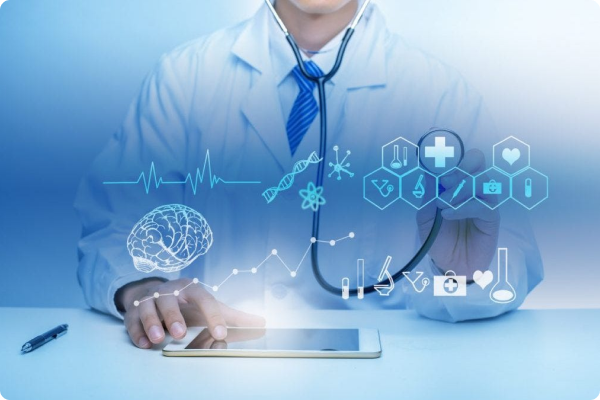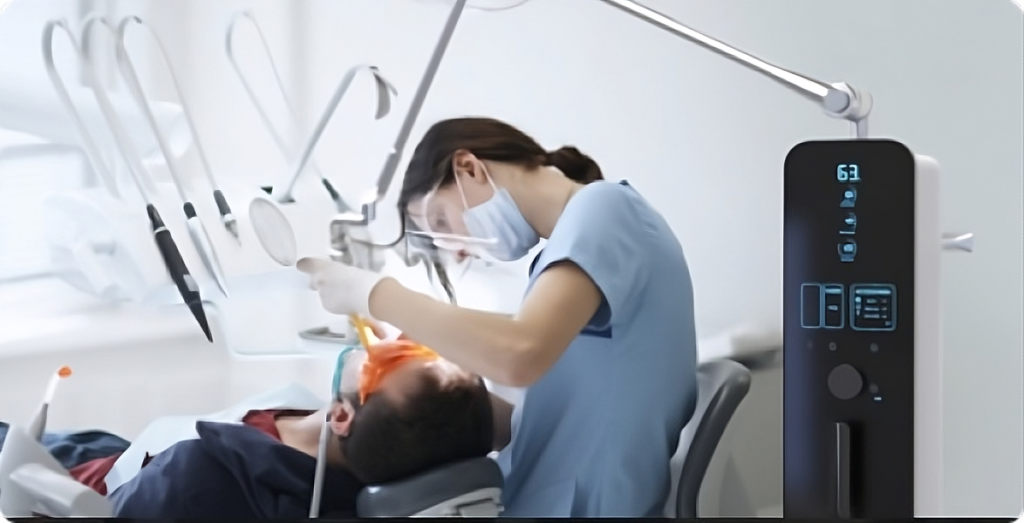Medical Device Data Analytics Development
The Role of Data Analytics in
Medical Devices
Data analytics in medical devices involves the collection, processing, and analysis of data generated by medical equipment. This data can range from patient vitals and diagnostic information to device performance and usage statistics.
By harnessing this data, companies can develop business intelligence (BI) systems and dashboards that offer actionable insights to healthcare providers, patients, and other stakeholders.

Systems Dashboard and BI Systems
BI systems, on the other hand, enable companies to perform in-depth analysis and generate predictive models. By integrating BI systems with medical hardware, companies can anticipate device failures, optimize maintenance schedules, and even predict patient health trends.

Application Integration with Medical Hardware
Seamless integration between software applications and medical hardware is paramount. This involves developing applications that can communicate with medical devices, gather data continuously, and provide feedback. For instance, a glucose monitoring system can relay real-time blood sugar levels to a mobile app, allowing patients to manage their condition more effectively.

Monitoring, Reporting, and Communication
Effective communication is also crucial. Data analytics systems should facilitate seamless communication between B2C (business-to-consumer) and B2B (business-to-business) entities. For B2C, this means providing patients with easy access to their health data and enabling them to share this data with their healthcare providers. For B2B, it involves ensuring that data can be securely shared between different organizations, such as hospitals, insurance companies, and regulatory agencies, perhaps even becoming a new revenue stream itself.
Supporting Methodologies for Startups and Growing Companies
Agile Development
Adopting agile methodologies allows companies to develop and iterate their data analytics systems quickly. This involves breaking down the development process into smaller, manageable tasks and continuously testing and refining the system.
Modular Architecture
Developing a modular architecture enables companies to build scalable and flexible systems. Each module can be developed and tested independently, ensuring that the overall system can be easily updated or expanded as needed.
Cloud Integration
Leveraging cloud technology provides startups and growing companies with the scalability and flexibility they need. Cloud-based data analytics solutions offer easy access to vast computing resources, enabling the processing of large data sets and the deployment of advanced analytics tools.
Data Security and Compliance
Ensuring data security and compliance with regulatory standards is paramount. Companies should implement robust security measures to protect sensitive health data and ensure that their systems comply with relevant regulations, such as HIPAA (Health Insurance Portability and Accountability Act).
User-Centered Design
Focusing on user-centered design principles helps in developing intuitive and user-friendly interfaces. This is particularly important for medical device data analytics systems, as they are used by a diverse range of users, from healthcare providers to patients.
Collaboration and Partnerships
Forming strategic partnerships with other companies, research institutions, and healthcare providers can provide valuable insights and resources. Collaboration can accelerate development and ensure that the data analytics systems meet the needs of all stakeholders.


